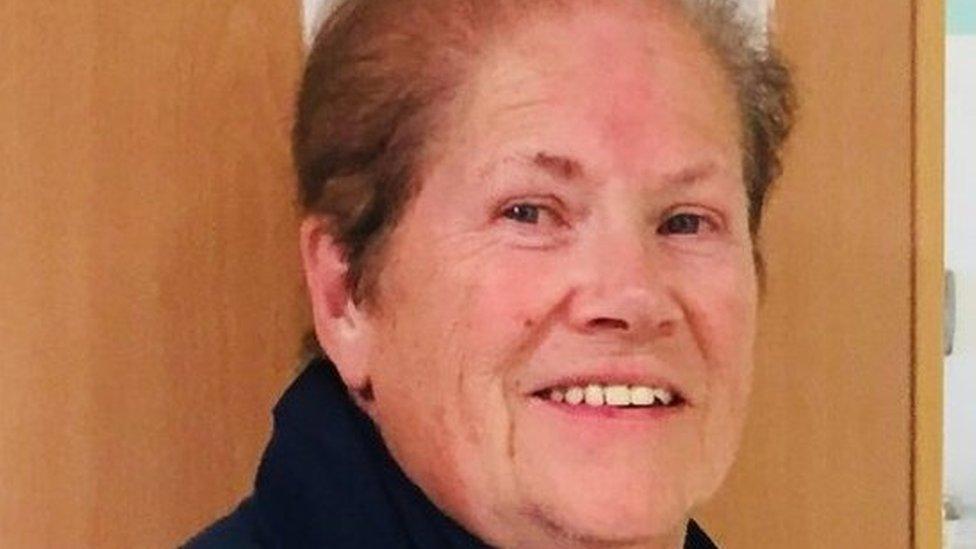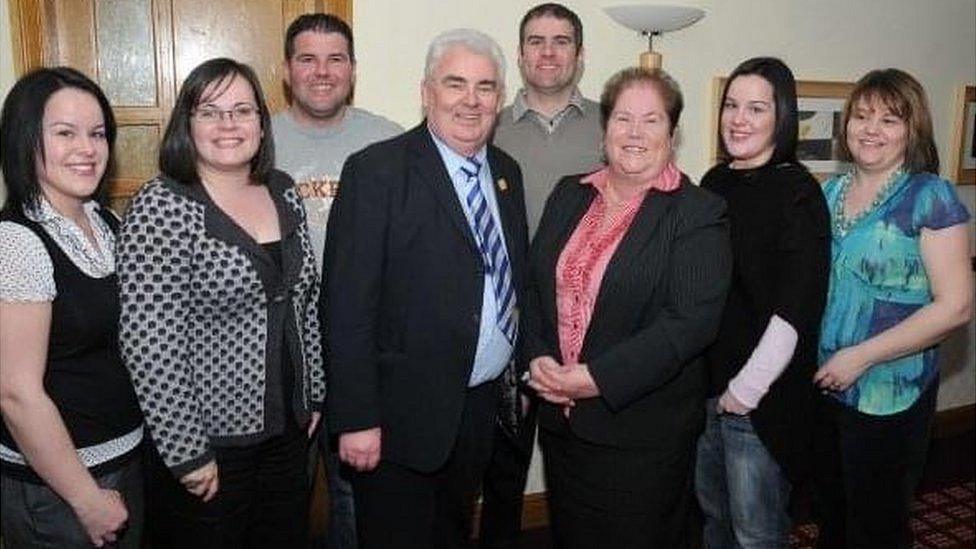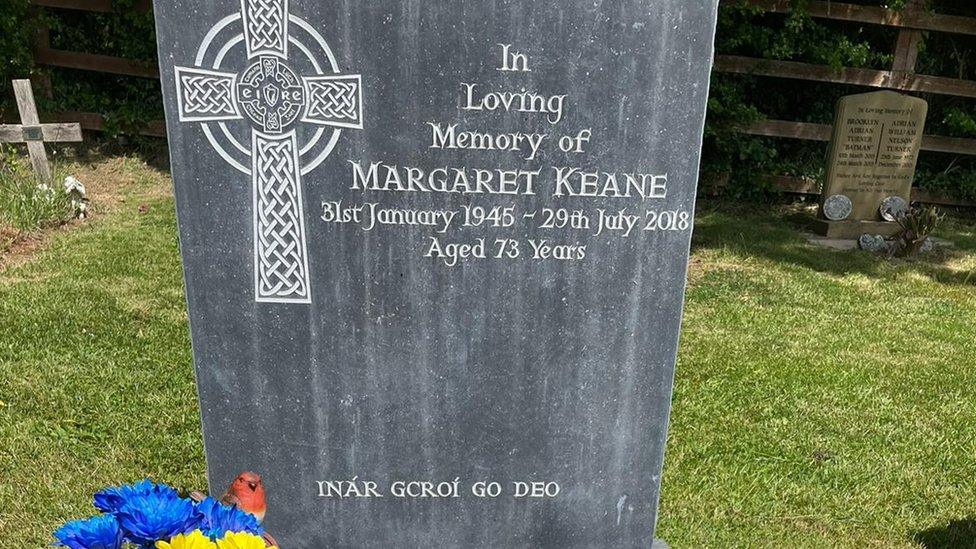Mum 'would have survived' had hospital tube been in place
- Published

Margaret Keane was born in the Republic of Ireland and is buried in Coventry
A mum would not have died if a tube to aid her breathing had been left in place, the health ombudsman has found.
Its report said Margaret Keane, 73, died due to airway compression following treatment by University Hospitals Coventry and Warwickshire NHS Trust.
It concluded that an ear, nose and throat (ENT) team did not appropriately assess her.
The trust has apologised and been ordered to pay £15,000 to the family.
Mrs Keane's daughter, Bez Martin, told Radio CWR her mother, who worked as a dinner lady for many years in Coventry, was an "amazing person" and dedicated to her six children.
She said the report was "incredibly painful reading".
"For us this feels like the very first day when we lost mum," she said.
"The report says exactly what I think we all knew which is why we fought for these answers.
"But reading it in black and white... is just devastating, it truly is - that had things been different, mum would still be with us as a family."
The report from the Parliamentary and Health Service Ombudsman (PHSO) said Mrs Keane collapsed in the street and stopped breathing on 28 March 2018.
Emergency department staff inserted a breathing tube and admitted her to the critical care unit at University Hospital Coventry, where tests identified she had an enlarged thyroid gland but it was not affecting her windpipe.
After the breathing tube was removed, Mrs Keane began having problems with her airway, and a tracheostomy tube, which helps maintain a patient's airway, was inserted.
She went home on 17 May but returned to the hospital three more times because she was struggling to clean the tube.

Margaret Keane pictured with her husband Bernie and their children, Caroline, Bernadette, Vincent, Michael, Margaret and Donna
On 25 July, the tube was removed and Mrs Keane was discharged the following day. She suffered a cardiac arrest on 27 July.
The ombudsman's report said she did not regain consciousness and she died two days later.
The cause of death was listed as an injury caused to the brain by a lack of oxygen, with the cardio-respiratory arrest caused by an upper airway obstruction.
The report concluded the ENT team did not appropriately assess Mrs Keane to find out why she had been having issues with her tracheostomy tube.
It said the enlarged thyroid gland was the likely cause for her problems and the ENT team should have reconsidered her treatment plan, which did not happen.
The report said the tracheostomy tube should not have been removed on 25 July and added that Mrs Keane died due to airway compression likely caused by the sudden enlargement of an enlarged thyroid gland.
If the tube had still been in on 27 July, it would have protected her airway and she would have survived, the report added.

Mrs Keane's family won a legal battle against the Church of England to have the Irish phrase on the gravestone
The ombudsman offered its condolences to Mrs Keane's family, which later fought to have an Irish inscription on her gravestone.
The ombudsman also ordered the trust write to acknowledge the failings and pay the £15,000 sum.
The trust must also make an action plan to outline how it will prevent similar events from happening to another patient.
A PHSO spokesperson said: "We cannot change what happened but it's important that when things go wrong with someone's medical care, those mistakes are recognised and addressed, and action is taken to stop the same thing happening again."
A spokesman for the trust said it accepted the findings and would use the case to improve the future care of patients.
He said the trust had already strengthened its complaints process and introduced a tracheostomy multi-disciplinary team, where complex cases like that of Mrs Keane were discussed.
"We wish to apologise to the family and friends of Mrs Keane for falling below the high standards of patient care we aim to provide and extend our sincere condolences at this time."

Follow BBC West Midlands on Facebook, external, Twitter, external and Instagram, external. Send your story ideas to: newsonline.westmidlands@bbc.co.uk, external
Related topics
- Published28 May 2022

- Published24 April 2022

- Published17 June 2021
